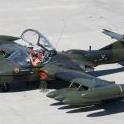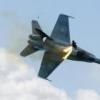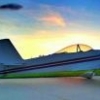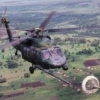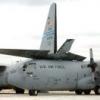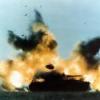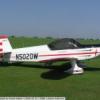Leaderboard
Popular Content
Showing content with the highest reputation on 05/04/2012 in all areas
-
If you cannot fall to your death, you should not be able to get an Air Medal. Simple as that.4 points
-
1) Good on him for coming on here to discuss. I've never been sentenced to fly the shipping container, but have some friends who were in on the ground level and have never left. We've talked at length about the price payed by those who execute the RPA misison. In many cases where you stand depends on where you sit, but I would hope that those who throw stones take some time to really think about what these guys go through, it's real on a lot of levels, and especially painful for those who didn't choose it. Not too many, including this author, are looking for pity...what they want is a better system. 2) Attacking his experience or details/semantics of his biography don't really help or make whatever point you think you're making -by extension: if we limit the people who can comment on combat to those who have seen actual AAA (as opposed to small arms fire or curtain fire?) or "guided" SAMs (are you counting optically guided RPGs or IR MANPADs...or even other missiles that could be RADAR guided but were shot ballistically?) There's a very small amount of people who can comment, and it would be really boring. I don't think that's a qualification for commenting on combat, nor is getting shot at by anything or killing someone. Bringing it up simply detracts from the argument. If you stick to the narrow definition of qualification to speak given previously, stop reading. If you broaden it to "allow" small-arms, RPGs or ballistic shots...or (better yet) think it doesn't matter, as I do, read on to my actual discussion on topic. 3) The real question isn't personal/physical danger...it's the act of killing those who want to kill Americans. The conscious decision to push a button and end the life of another human is not one without cost to the individual doing the killing. The miles don't change that (hand-to hand/face to face combat has differences) There is no difference in dropping a bomb from Xthousand feet or launching a cruise missile from hundreds of miles away vs. the thousands he is at. He distracted from his primary argument in the manner he raised his question, but it doesn't minimize the discussion. There needs to be better systemic recognition of the folks who are KILLING for their country, and by extension risk killing non-combatants, feeling the pain of watching Americans die live on TV, and having to deal with that in an environment where the rest of the world may be a little too normal. (kill someone then go to Wal-Mart because the wife needs apples?) Whether you sleep well at night or not, no matter how you justify it, there is a cost to killing. Anyone who says differently has either not done it, and/or not thought about it too deeply. Does killing define combat or is there more. I fall on the side of killing=combat based on the psychological results. 4) medals are simply an example of a way for the system to acknowledge this action and the sacrifice involved. An Air Medal is not correct...nor is Aerial achievement medal in my opinion. There is a distinct lack of a person in the air. Bronze star? (I'll refrain from the obvious jokes here) I don't think that's right either. There should be something different and new...the battlefield has changed, our terminology, culture, and by extension the system of reward and recognition must change as well. Thoughts?2 points
-
That's the problem dude. It's not plausible. Not at all. If you think your pink body is even potentially more at risk at the controls of an RPA than a guy in a manned airplane (which is what you said) then your entire argument is tainted by your emotions. That just doesn't pass the sniff test. The risk in combat is not entirely from enemy fire, although despite the statistics that danger does exist. It also simply includes the risk of riding a piece of metal through the air and is amplified by difficult, sometimes extremely challenging circumstances...troops in contact, weather, night, mountains, etc. That risk is there whether the bad guys are shooting at the airplanes or not. Take note of the aircraft losses in the last 10 years that were not caused by enemy fire. It seems to me the risk of flying in a combat theater caught up to those guys regardless of exactly why. The ground--it turns out--has a Pk pretty close to 1.0 and that's not a problem you face as an RPA pilot. You might also take note of a few other threads near the top of the stack in this forum. Seems to me we lost a couple of airplanes quite recently. My point with any of this is not to discredit what RPA guys do and the sacrifices you make (and I do believe they are sacrifices) . I would never do that. I sympathize and agree with much of what you said. I just can't believe you lobbed that ridiculous grenade out there in the midst of saying something potentially good. I wish you had focused more on the "what defines combat" part--which is a discussion worth having-- than the "we face more risks" and "we deserve medals too" parts which came across as pure whining and served to distract from the rest.1 point
-
I'd say the RPA guys are engaging in combat, just as much as the guy who launches a TLAM from the boat or a CALCM from a BUFF. I don't think claiming RPA guys are "more at risk" than guys flying in country is a valid argument on that path, though.1 point
-
1.) It takes two of you to fly a model airplane doing 90 knots, of course you get no respect. 2.) You're not in theater 3.) I've yet to hear of an RPA "pilot" killed when "X" went wrong.1 point
-
Posting for Dave Blair since he can't post from his new baseops.net account yet. ======================================= Greetings all. Out of respect for my friends who have gone out on a limb for me, I will explain the rationale for posting this piece. Frankly, it is a waste of your time and mine to discuss my own relative merits or respond to ad hominem arguments, but I believe the argument at the heart of the matter is a critically important discussion for our service. The argument is not about medals, but about culturally anticipating rather than resisting changes in the nature of warfare (ideally before our enemies anticipate them.) Baseops.net seems as appropriate a place as any to have that discussion. To clarify a few things - the Time article came as a surprise, and I do not agree with either the title or how it is parsed. I would prefer that people read the piece as written in ASPJ, which is where it is in context, and assert that if you wish to responsibly engage with this argument, you should do so. To be perfectly straightforward, it would have been far easier to let this piece sit on my hard drive, as it had for a year after I wrote it out of frustration, as a flight commander trying my best to convince my troops that they were at war when institutional incentives seemed to be doing their best to tell them they were not. If I am putting a guy in the seat with a red button wired to a missile liable to be shot in close proximity to friendlies, I want to use everything in my power as an institution to convince that guy that he is in Afghanistan rather than in New Mexico - I owe that to the guy on the ground whose life I am entrusting to the guy in the seat. And as the response to date predictably points out, I have much to lose and honestly nothing to gain by posting the article, as I am no longer at Cannon. But I continue to believe strongly that this is a discussion we need to have. One misunderstanding is with the definition of 'differential risk of combat.' I will take a spear for this misunderstanding, as I felt it was self-evident, and upon re-reading realized it is not. There is obviously risk associated with the physical act of flying - mourning a few friends over the last few months made this quite clear. If the argument were about the appropriateness of overall aviation incentives, then this would be a crucial point. It is not. The argument is about the conditional increase in risk due to combat, where I hold to the point. With the tremendous exception of rotary wing aircraft, which I saw in my gunship days and still see today as very much taking on risks the rest of us don't, the increase in risk due to combat is very small in both cases, and plausibly higher in the case of RPA. I have more combat hours than home station hours in manned aircraft, mostly over Sadr during the surge, and the three times I've truly felt as if my life was in jeopardy were all during peacetime missions. A second misunderstanding is about the stakes of the argument. This is not about medals, but about messaging. The historical example that figured most strongly in my mind when crafting this piece is that of artillery. In a similar story to our current discussion of RPA, artillery was initially considered a civilian 'non-combat' role, as they were not in the line of battle and initially could not expect to take significant casualties. However, people soon realized that it was less than bright to have the people lobbing explosive shells over their heads less institutionally invested in the outcome - the nation that first let effectiveness trump prestige gained great advantages (Napoleon, I believe, was the first to militarize and professionalize artillery.) For this reason, I believe the cultural valuation of RPA has much to do with the trajectory of our service - the 'swarm' and the 'cloud' stand to revolutionize air combat, and it worries me intensely that we'll get there second and find our way into some Kipling poem about eclipsed empires. Given the budget issues we're having, air-centric 'offshore balancing' a la Libya seems one of the few viable options in the long run, and persistence (not necessarily unmannedness) gets us there. So this is why I care so much about the messages we send with institutional incentives - because they shape futures. If you don't believe this, look at the promotion rates at Creech and ask what that means for the maturation of RPA. The heart of the matter is 'how do we constitute combat' when the functions of killing become de-centralized and geographically dispersed. (This is one level up from the discussion we had about BVR engagements and cruise missiles - both an AMRAAM and a JASSM are both 'drones' by the pure definition.) I believe 'combat risk' - your own personal life being in danger - is a subset of 'combat responsibility,' which is first-order causal agency over life and death in wartime. What is the primary role of an army officer - to risk his own life, or to make tremendously difficult decisions with the lives of others? I argue that both of these qualify as combat. (When lives are not directly on the line in the Pred, such as persistent ISR without blue forces on screen, or IED scans without an attack clearance, then I do not believe this qualifies for combat per this definition.) To not do this is to ask for little bubbles of peacetime flying around the AOR in the name of preserving some entrenched order. We owe better to our comrades in the ROZ stack and to our comrades on the ground, and tragically we have at times failed to deliver. I believe part of why is because the institution is communicating through cultural markers (medals, blogs like this, etc.) that it is appropriate to not view the actions of RPA through the life-and-death-serious lens of combat. I may very well be wrong on this point. But it is a discussion that I believe we need to have.1 point
-
1 point
-
1 point
-
1 point
-
It is beyond ridiculous and as far as I know, the cud-chewer that wrote this article is the only person that feels that way.1 point
-
1 point
-
This guy whining about not getting combat medals while facing zero physical risk. Count me as unsympathetic...unless the monitors explode and kill people when the Predator crashes. The bit about being in more danger because of the potential for an Al-Qaeda assassination in the US is just ridiculous. Why would anyone with any self-respect say that after the number of "green on blue" incidents we've had?1 point
-
You may want to make sure there aren't any Desert Storm medals lurking in there while you're at it.1 point
-
Yeah, my takeaway from that whole "article" was: Nothing to See Here. Hell, I'd cash in one or two of my AMs to get a reliable ARC210.1 point
-
SHUT YOUR MAN PLEASING CAKE HOLE! You get to go home every night, throw the wife's heels to the ceiling, and watch kiddo's t-ball games and NFL Sunday Ticket on the weekend...oh yeah, Booze! Meanwhile the lowly manned aircraft are flying low level airdrops and shows of force....in the mountains......with weather.....at night! Oh yeah, no Booze! No amount of air medals is worth the time I've missed watching my kids grow up Chow My Hog! Cap-101 point
-
The only weird feeling I have about this is that I am actually pleased with the death of another individual. It is closure and it really happened. How can we be sure? I need to see the death certificate. LONG FORM.1 point
-
1 point

